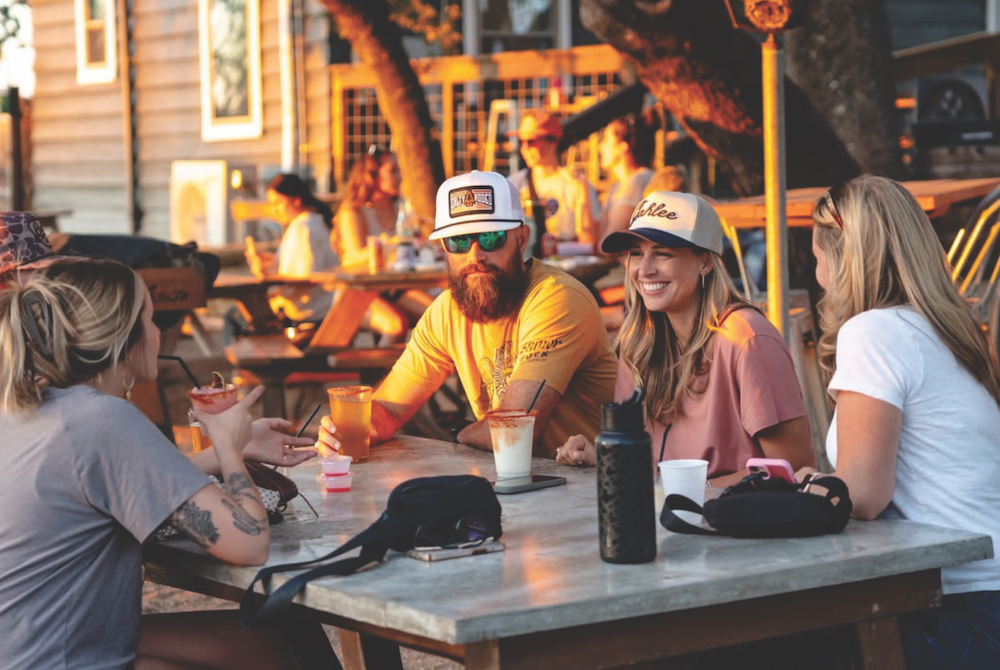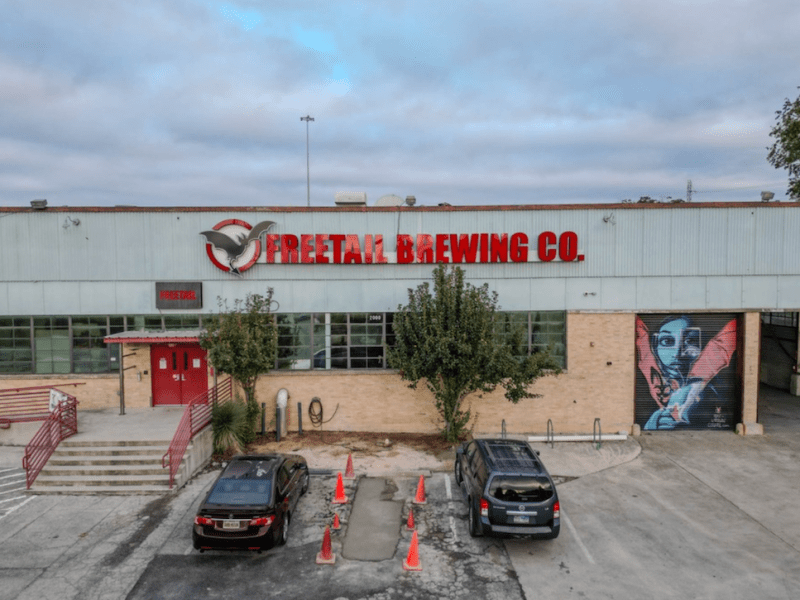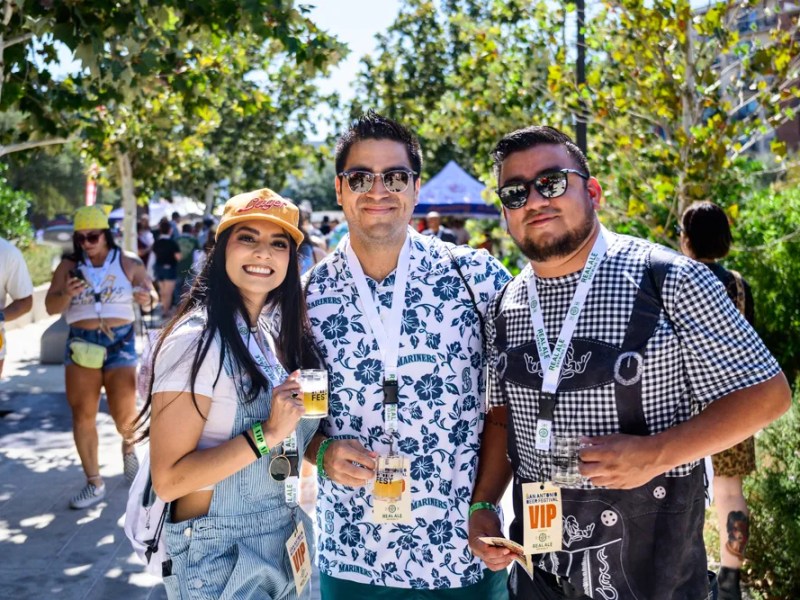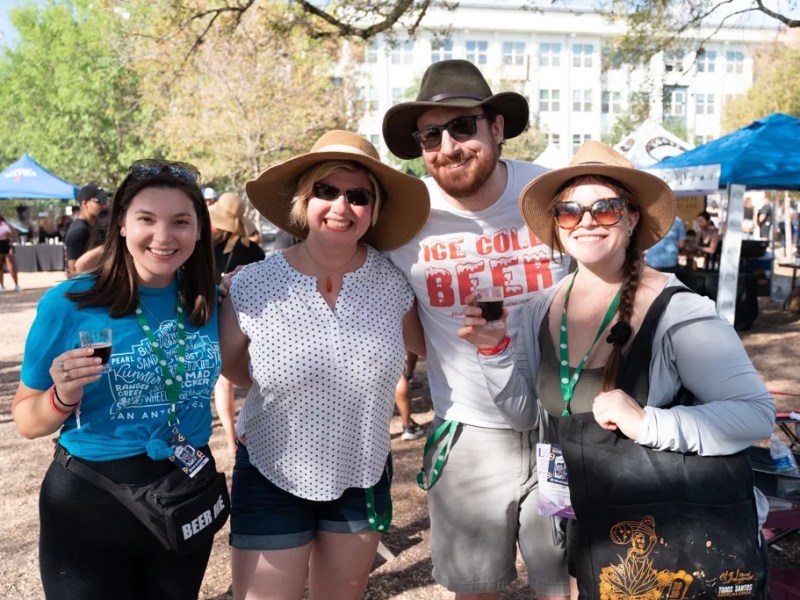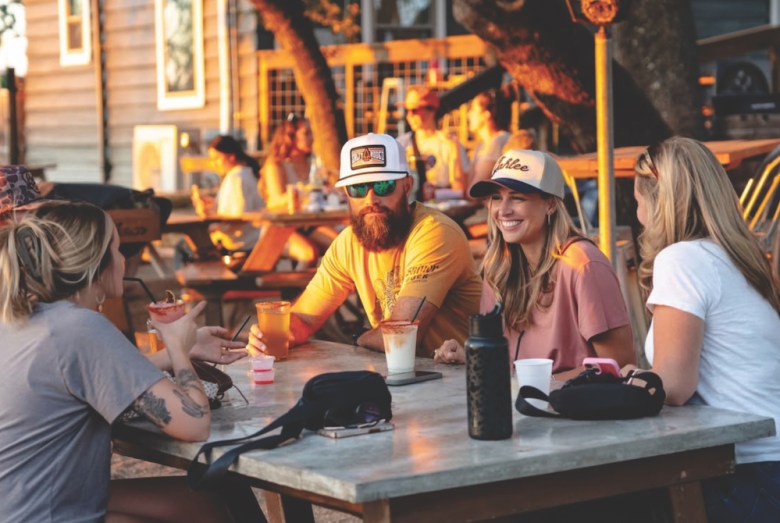 San Antonio craft-brewing operations such as Cactus Land Brewing say selling beer alone isn’t a winning strategy in the current economic environment. Credit: Instagram / cactuslandbreing
San Antonio craft-brewing operations such as Cactus Land Brewing say selling beer alone isn’t a winning strategy in the current economic environment. Credit: Instagram / cactuslandbreing
Whether it be city construction, tariffs or changes in consumer drinking habits, the past few years have been anything but easy for San Antonio breweries.
More than half a dozen Alamo City breweries have closed shop or scaled back operations since the start of last year, and even the survivors and stalwarts are revamping. Longtime presence Freetail Brewing Co. stopped its retail distribution, for example, while Alamo Beer Co., the city’s largest brewing operation, filed for Chapter 11 bankruptcy reorganization.
“It’s extremely tough,” Alamo Beer owner Eugene Simor told the Current. “It’s always been tough, but what we’re seeing now is kind of all the increasing costs building up to a point where businesses are having to make some very difficult decisions. Increases in property taxes, costs of goods all continue to go up and really haven’t normalized since COVID.”
Indeed, Simor said he’s selling Alamo Beer to a new investor group and will release more details to the public next month.
However, other San Antonio craft brewers said that despite the continued economic headwinds, they’re hopeful the worst is over and the breweries that weathered the storm are likely here to stay.
The ones that have remained in operation survived by evolving with the times, said Dustin Teague, owner of Cactus Land Brewing Co. in the San Antonio suburb of Adkins.
“There was such a boom in the industry between 2012 and 2014. Everybody and their grandma wants to open up a brewery because it was the cool thing to do,” Teague said. “What happens is that not everybody can either financially do it well or have somebody who knows what they’re doing as far as beer goes.”
It wasn’t necessarily just the saturated market that forced the slew of recent closures, though. A dramatic change in consumer habits followed the COVID-19 pandemic.
“COVID kind of changed how people spend their money, and they became pickier in the sense that they want more experiences,” Teague said. “People nowadays want more. They’re spoiled.”
Teague calls it the “Amazon effect,” or the sense that consumers want something new and exciting — and they want it immediately. Breweries could no longer just be places where enthusiasts came to grab a craft ale. Instead, they had to become destinations that catered to everybody, including families.
To evolve, Cactus Land now features a playground, live music, food trucks, craft cocktails and frozen wines in addition to its house-made suds.
San Antonio’s Künstler Brewing also evolved with the times.
“When we got into the business, we wanted to just be a brewery and serve beers and a few snacks. But, I think after 2020, people wanted more,” Künstler owner Vera Duckard said. “I think what keeps us going is that we continuously try to think outside the box and create fun events that people like to go to. More than anything, what lures people out are events.”
Although special gatherings and expanded venues have helped keep some SA breweries in business, owners are also trying to combat new obstacles, including a change in drinking habits and President Donald Trump’s on-again-off-again tariffs.
A 2023 Gallup survey found that just 62% of U.S. adults drink, a measurable decline from 72% two decades ago. What’s more, non-alcoholic beer sales jumped 9% in 2024, according to beverage industry analysis firm IWSR.
“I do think that we have a generation that’s starting to look for what I call the ‘better for you’ beverages,” Simor said. “As a result, the drinking of all alcoholic beverages, not just beer, is showing stress.”
At the same time, breweries are struggling to make sense of Trump’s erratic trade war and keep costs down while paying more for ingredients.
“It’s been a little more difficult getting European hops,” Deckard said. “So, we’ve had to pivot and find hops that we can substitute that still work in my recipes. Prices have gone up, and it’s difficult for us to pass it on to the consumer, because the consumer doesn’t understand, and I still have to make it approachable for them to come out.”
Both Deckard and Cactus Land’s Teague noted that smaller breweries can pivot more easily than larger ones. Bigger operations need to scale up their production to avoid significant cost overruns.
“I’ve noticed that things have gone up here and there,” Deckard said. “But, it’s not enough to really force a closure or anything. We’re not big enough to see a big impact. If we were mass production, distribution, that kind of thing … then it might be different.”
Although the brewing industry may have bottomed out, the best way folks can ensure that their favorite Alamo City beer producer stays in business is by shopping and drinking local, Simor said
“The best we can do as small businesses is continue to get people to support local and hopefully, at some point in time, we see a dramatic increase in it,” he added.
Subscribe to SA Current newsletters.
Follow us: Apple News | Google News | NewsBreak | Reddit | Instagram | Facebook | Twitter | Or sign up for our RSS Feed
Related Stories
The move comes after the pioneering local craft-beer business placed itself up for sale last year and ceased retail distribution.
Saturday’s event marked both its 20th anniversary and its return to Civic Park at Hemisfair.
Breweries from around the world will be on hand to pour hundreds of premium, craft and near beers.

